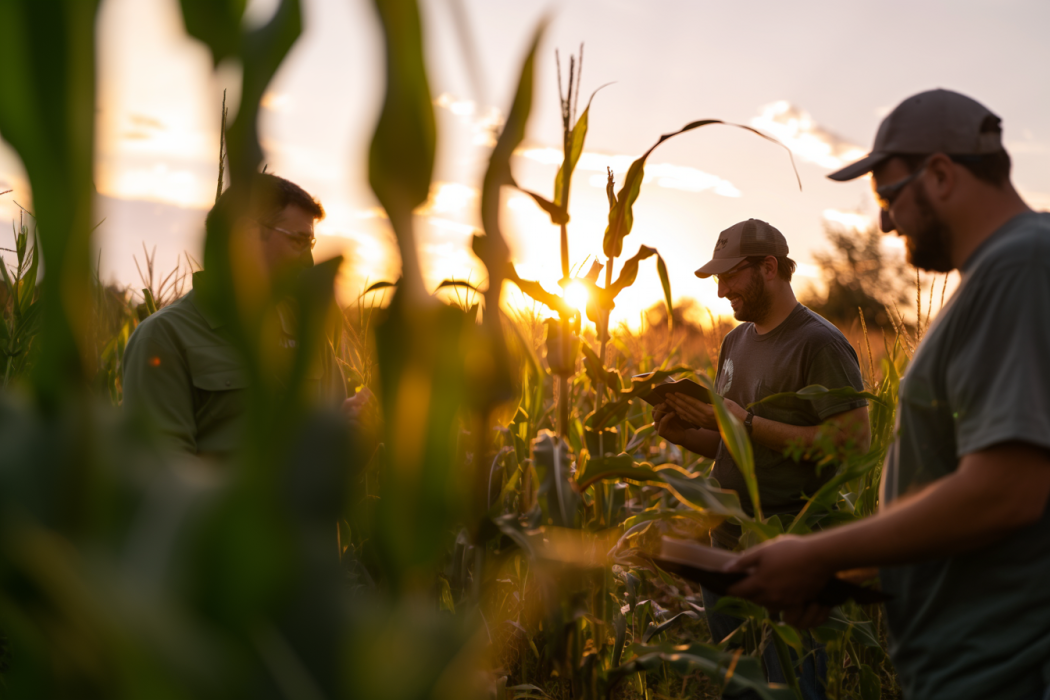- Home
- Following the Soil
- Agricultural Products are Safe with Soil Analysis
Agricultural Products are Safe with Soil Analysis

Soil, which contains nutrients, microorganisms and many mineral substances for plants, can lose its nutritional value due to natural or man-made reasons. It is possible to restore the nutritional value of the soil with fertilization methods based on the results of analysis.
Soil, where all living creatures on earth live directly or indirectly, becomes more productive when it can be protected with the right technique. In this way, both the agricultural sector benefits and people are enabled to consume healthy and safe food. In order to ensure that the plants to be grown on the land or field are healthy and of high quality, and to achieve high-yield agricultural production, it is necessary to know the soil and to identify its deficiencies and needs in advance. Soil analysis is an important issue for this. According to the result obtained, the seed can meet with a healthy soil; it can protect itself throughout its lifetime and offer abundant and delicious products.
What is soil analysis?
Soil analysis, in the most general terms, is a scientific laboratory test that reveals the physical and chemical properties of samples taken from a specific field or land according to appropriate criteria. According to the results of these tests, the nutrient elements needed by the plants that are planned to be grown in the soil but are missing in the soil are determined.
Why soil analysis?
Soil, which contains the nutrients and many mineral substances necessary for plants, can lose its fertility due to factors such as improper fertilizer use, unconscious irrigation, water and environmental pollution, erosion, drought and acidification. Soil analysis enables farmers to take the right steps in matters such as product selection, planting activities and fertilization by looking at the amount of nutrients and elements in the soil structure and their suitability for the plant to be grown. When farmers act according to the results of soil analysis, it is guaranteed that the product obtained from the soil will be healthy, high quality and productive.
Fertilization based on analysis
Fertilization based on analysis, especially soil and leaf analysis, should be interpreted and regulated by experts. Correct and appropriate fertilization allows for increased resistance to plant diseases and pests, and less water and electricity consumption. In this way, it contributes to the environment and the economy of the producer.
PAY ATTENTION TO THESE!
To ensure that soil analysis is not misleading, and to provide proper fertilizer recommendations, it is important to pay attention to some techniques when taking samples.
Sample Collection Time: Soil samples should be taken when the soil is neither dry nor wet, at least 1.5-2 months before fertilization or planting season, depending on the season.
Sampling Points: When taking soil samples, it is important to consider the entire field or plot. If samples are being taken for different agricultural areas or products, it is more accurate to create separate samples for each area or product. This way, fertilization plans can be made according to the needs of each region or product.
Identifying Unsuitable Areas: Soil samples taken from swampy areas, near streams, roads, buildings, excessively salty areas, regions previously treated with lime or fertilizer, places where ants or moles have built mounds, areas where animals have rested, irrigation canals, water accumulation sites, or land previously burned for stubble can yield incorrect analysis results.
FOR A COMPREHENSIVE WORK IN SOIL ANALYSIS…
As a subsidiary of Yıldızlar Yatırım Holding, YLDZ Laboratory conducts its work considering both the country's and the farmers' economy and the ecosystem in which they operate. By supporting the production of high-quality products in agricultural production and ensuring sufficient economic returns from used resources, YLDZ Laboratory, with the authorization certificate from the Ministry of Agriculture and Forestry and TÜRKAK accreditation, performs analysis in 116 parameters for soil, irrigation water, fertilizer, and plant analyses.
Through comprehensive work in soil analysis, YLDZ Laboratory provides farmers with correct guidance on which type of fertilizer to use for which product, the amount of fertilizer needed, and the timing of its application. Farmers who apply this information achieve more profitable agricultural production.
WE MUST ALL TAKE CARE OF OUR SOILS TOGETHER
YALÇIN ÖZ | YLDZ LABORATORY MANAGER
Soil, which is fundamental to agricultural production, is the main livelihood of plants, the first link in the food chain. The interaction between soil and plants creates the vital cycle that ensures the healthy functioning of the ecosystem. The disruptions in the food supply and distribution chain experienced during the pandemic have once again highlighted the importance of this cycle. Despite having fertile soils, we see that productivity is declining day by day in Turkey. One of the main reasons for this is the incorrect agricultural practices emerging from misinformation. Since its establishment, YLDZ Laboratory has been serving to correct this misinformation, the biased view towards soil analysis, and most importantly, incorrect agricultural practices. To collectively take care of our soils, the silent heroes and allies of food production, we need to conduct soil, leaf, and irrigation water analyses to prevent environmental pollution and resource waste.